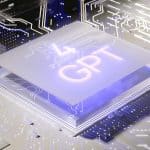The Nissan LEAF, an all-electric vehicle, has carved out a niche in the competitive EV market due to its affordability and reliability. However, as technology and the field of EVs continue to evolve, many LEAF owners are seeking ways to increase their vehicle’s range through a battery capacity upgrade. With advancements in battery technology, there are a few different strategies and options for upgrading the Nissan LEAF’s battery pack to increase the vehicle’s range. Here, we will delve into these options and discuss their implications for your LEAF’s performance and longevity.
Understanding the Nissan LEAF’s Battery Capacity
A solid understanding of the Nissan LEAF’s battery capacity is crucial before considering any upgrade. The Nissan LEAF’s battery pack, which is the vehicle’s power source, is measured in kilowatt-hours (kWh). The capacity of a battery pack is essentially the amount of energy it can store and deliver to the vehicle. The higher the kWh rating, the longer the vehicle will last on a single charge.
A voir aussi : What Are the Best Custom Paint Techniques for a Show-Stopping Motorcycle Tank?
The Nissan LEAF comes with different battery capacities, ranging from 24 kWh in older models to 62 kWh in the latest models. This directly impacts the car’s range – the number of miles it can travel on a full charge. For instance, a Nissan LEAF with a 24 kWh battery pack can travel approximately 84 miles, while a LEAF with a 62 kWh battery pack has a range of about 226 miles.
Upgrading Your Battery Pack
Increasing your Nissan LEAF’s battery capacity is effectively achieved by upgrading your battery pack. This involves replacing the existing battery with a higher capacity one. There has been a surge in companies providing this service due to the growing demand from electric vehicle owners looking to extend their car’s range.
Cela peut vous intéresser : How to Optimize the Drivetrain of a Toyota Supra for Drag Racing?
Battery packs with larger capacities not only increase the range of the vehicle but also tend to have a longer lifespan than their lower-capacity counterparts. This is primarily because they undergo fewer charge and discharge cycles for the same mileage covered, which helps to extend their overall life.
Nonetheless, it’s important to consider the compatibility of your vehicle with the upgraded battery pack. Nissan LEAF models produced from 2011 to 2017 are compatible with 24, 30, and 40 kWh battery packs. However, the 2018 and later models, which come with a new vehicle architecture, are compatible with 40 and 62 kWh battery packs.
The Role of Fast Charging in Increasing Range
Besides upgrading your battery pack to increase the range of your Nissan LEAF, the charging infrastructure and charging time also play a crucial role. As the name suggests, fast charging significantly reduces the amount of time it takes to charge your vehicle, thus increasing its practicality and utility.
For instance, a Nissan LEAF with a 24 kWh battery pack can take up to 8 hours to fully charge on a level 2 charger, providing a range of about 84 miles. However, with a fast-charging station, the charging time can be reduced to less than an hour.
Fast charging infrastructure has been rapidly expanding across the country, with many businesses and municipalities providing charging stations in central locations. If you frequently use your LEAF for long-distance travel or have a busy schedule, using these charging stations will significantly increase the practicality of your vehicle.
Comparing the Nissan LEAF Battery Upgrade with Other EVs
To appreciate the impact of a battery upgrade on the Nissan LEAF, it’s helpful to compare it with other electric cars on the market. Tesla, a well-known player in the EV market, has achieved fanfare for its high-capacity batteries and impressive range.
Tesla’s Model 3 Long Range, for instance, boasts a 75 kWh battery pack and a range of 322 miles – significantly higher than the Nissan LEAF’s original specs. However, with a battery pack upgrade to 62 kWh, your Nissan LEAF could achieve a range of 226 miles, bridging the gap between the two.
It’s important to note that, while Tesla’s batteries have a higher capacity, they are also more expensive. As such, upgrading your Nissan LEAF’s battery pack is a cost-effective solution to increase your vehicle’s range without breaking the bank.
In conclusion, increasing the range of a Nissan LEAF is achievable through a battery capacity upgrade. Whether it’s swapping out the battery pack for one with a larger capacity or making use of fast charging stations, you have several options to extend your vehicle’s range. However, it’s important to carefully consider the compatibility of your vehicle with the new battery pack and the availability of charging infrastructure in your area. By doing so, you can ensure a seamless transition to a higher range Nissan LEAF that aligns with your driving needs.
The Process and Cost of Nissan LEAF Battery Upgrade
Understanding how to upgrade your Nissan LEAF’s battery involves knowing the process and the costs that come with it. Upgrading your battery is not as simple as purchasing a new battery pack and installing it. The process involves a number of steps and considerations that need to be addressed to ensure a successful upgrade.
The first step is to determine what capacity battery your Nissan LEAF is compatible with. As discussed, models produced from 2011 to 2017 are compatible with 24, 30, and 40 kWh battery packs, while the 2018 and later models are compatible with 40 and 62 kWh battery packs.
Once you’ve determined the size of battery your vehicle can accommodate, the next step is to source a replacement battery. This can be done through numerous companies that specialize in EV battery upgrades. However, it’s important to do your research and choose a reputable company that offers warranties on their battery packs.
The process of actually replacing the battery involves removing the old battery pack and installing the new one. This is a complex task that requires professional assistance. It involves disconnecting the battery from the vehicle’s electrical system, removing it from the car, and then installing the new battery pack. This should be done by a qualified technician to ensure the safety and effectiveness of the upgrade.
The cost of a Nissan LEAF battery upgrade can vary greatly depending on the capacity of the battery and the service provider. Generally, a battery upgrade can cost anywhere from $5,000 to $10,000. This might seem like a significant investment, but when you consider the increased range and lifespan of your vehicle, it can be a cost-effective solution.
Conclusion: Increasing the Range of Your Nissan LEAF
The Nissan LEAF is an affordable and reliable electric vehicle, but its range can be limiting for some drivers. Fortunately, there are ways to increase the range of your Nissan LEAF through a battery capacity upgrade. This involves replacing your current battery pack with a higher capacity one, which can significantly increase your vehicle’s range and lifespan.
Additionally, making use of fast charging stations can also increase the practicality of your vehicle, reducing the time it takes to charge and thus increasing the overall range. However, it’s crucial to consider the compatibility of your vehicle with the new battery pack and the availability of charging infrastructure in your area.
It’s also important to compare the Nissan LEAF battery upgrade with other EVs to help you understand the value and potential of your upgrade. Although upgrading your Nissan LEAF’s battery can come at a significant cost, it’s a cost-effective solution to increase the range of your vehicle in the long run.
In conclusion, enhancing your Nissan LEAF’s range is achievable, allowing you to enjoy the benefits of your EV for longer distances. By understanding your vehicle, the battery upgrade process, and the costs associated with it, you can make informed decisions that will improve your driving experience and the utility of your vehicle.











